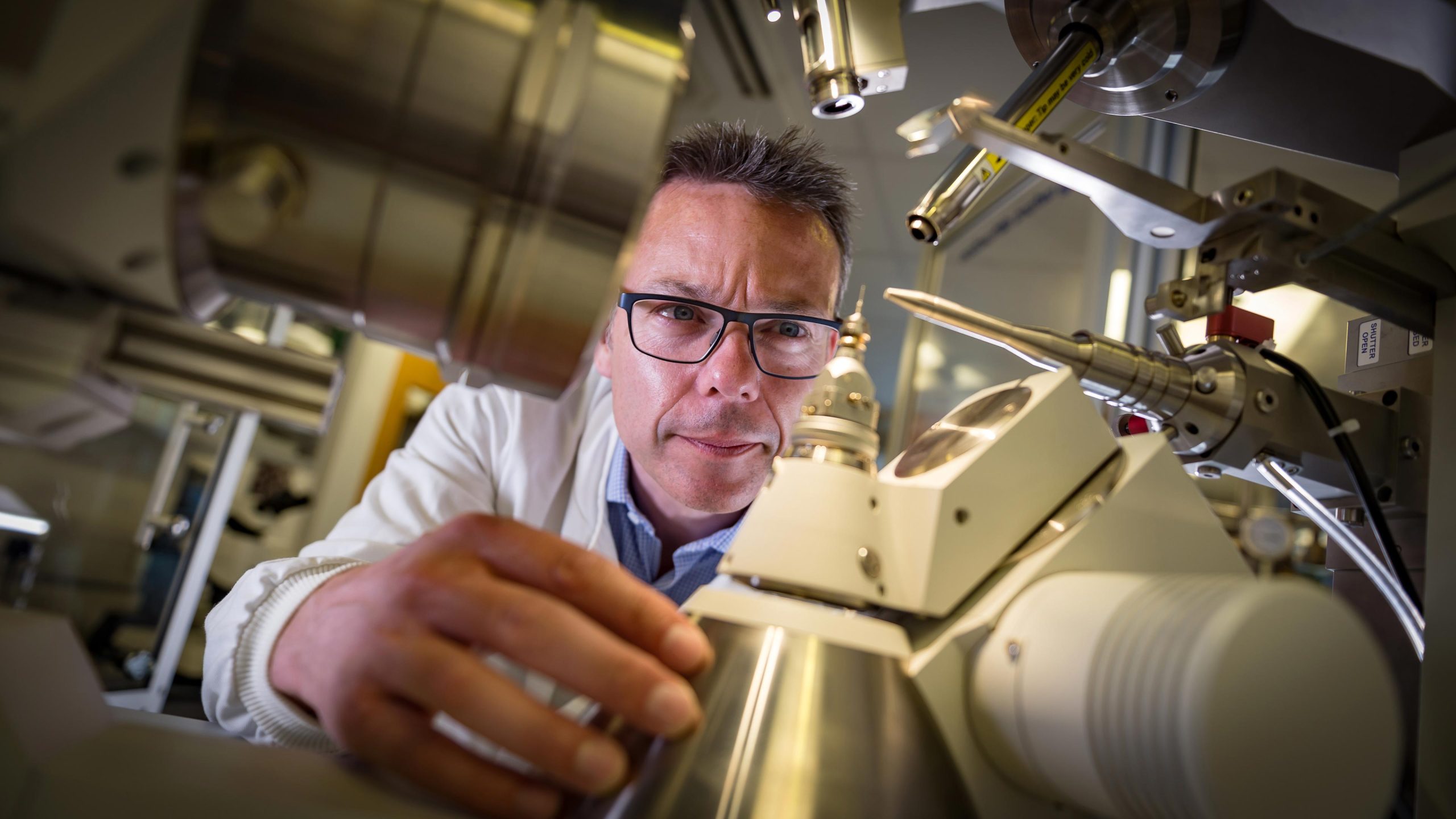The TPADO enzyme. Photo credit: Rita Clare, Montana State University
Scientists who pioneered the use of enzymes to digest plastic have taken an important next step in developing nature-based solutions to the global plastic crisis.
Scientists who pioneered the use of enzymes to digest plastic have taken an important next step in developing nature-based solutions to the global plastic crisis.
They have characterized an enzyme that has the remarkable ability to break down terephthalate (TPA), one of the chemical building blocks of polyethylene terephthalate (PET) plastic, which is used to make single-use beverage bottles, clothing and carpets.
The study, published in The Proceedings of the National Academy of Sciences (PNAS)was co-directed by Professor Jen DuBois, Montana State University, and Professor John McGeehan University of Portsmouth, who in 2018 led the international team that developed a natural enzyme that can break down PET plastic. The enzymes (PETase and MHETase) break down the PET polymer into the chemical building blocks ethylene glycol (EG) and TPA. This new study describes the next steps, specifically for the management of TPA.

Professor John McGeehan. Photo credits: Stefan Venter, UPIX Photography
Professor DuBois said: “While EG is a chemical with many uses – it’s part of the antifreeze you put in your car, for example – TPA doesn’t have many uses outside of PET, nor is it something that most bacteria can even digest . However, the Portsmouth team revealed that an enzyme from PET-consuming bacteria recognizes TPA like a hand in a glove. Our group at MSU then showed that this enzyme called TPADO breaks down TPA, and pretty much just TPA, with amazing efficiency.”
With more than 400 million tons of plastic waste being produced each year, the vast majority of which ends up in landfills, it is hoped this work will open the door to improving bacterial enzymes like TPADO. This will help address the plastic pollution challenge and develop biological systems that can convert plastic waste into valuable products.
Professor McGeehan, the director of the University’s Center for Enzyme Innovation, said: “In recent years incredible advances have been made in the development of enzymes to break down PET plastic into its building blocks. This work goes a step further and considers the first enzyme in a cascade that can break down these building blocks into simpler molecules. These can then be used by bacteria to create sustainable chemicals and materials that turn plastic waste into valuable products.
“With powerful X-rays on diamond light sourcewe were able to generate a detailed 3D structure of the TPADO enzyme showing how it carries out this crucial reaction. This provides researchers with a blueprint for designing faster and more efficient versions of this complex enzyme.”
Reference: “Biochemical and structural characterization of an aromatic ring hydroxylating dioxygenase for terephthalic acid acid Catabolism” until March 21, 2022, Proceedings of the National Academy of Sciences.
The study was conducted as part of the BOTTLE Consortium, an international collaboration between the US and UK that brings together researchers from a wide range of scientific fields to tackle the recycling and upcycling of plastics.

